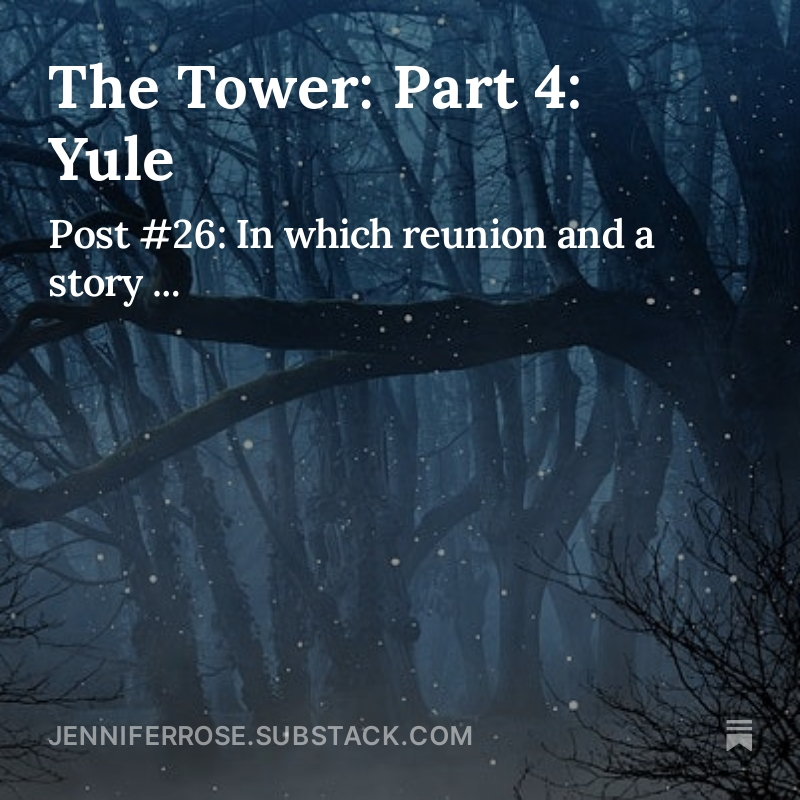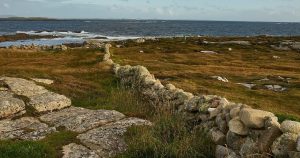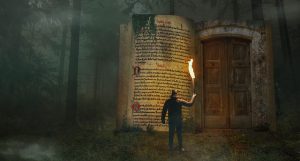by Jenny Rose | Jul 20, 2024 | A Flourishing Woman, Self-Love
The more battered I feel by the news cycle and the daily externals of my world, the more important it is to spend time in solitude, focusing inward and practicing love and trust with myself.

Photo by Cristian Newman on Unsplash
(It sounds delightful, doesn’t it? So wise and functionally adult! It doesn’t read like tears; trauma; dumping feelings onto the page; wrestling with fear, despair, perfectionism, heat, humidity, housework, and (most recently) a fiery case of athlete’s foot while the garden turns into a steaming jungle outside my locked and blinded windows and the air conditioner gently roars.)
I recently reread The Mermaid Chair by Sue Monk Kidd. I haven’t read it in a long time, but it was next on the shelf, so I cracked it open. I came across a line I don’t remember and evidently didn’t remark on previously: “…I’d never done anything that took my own breath away …”
The speaker is a middle-aged woman and that line grabbed my attention.
We are consumed by externals. The male gaze. The public eye. What others think of our looks, our words, our actions. Is our virtue signaling adequate and prominent? Are we pleasing the right people? Are we flourishing our flags with sufficient outrage and hostility? Are our masks and identities firmly in place?
The more we focus on externals, the less we pay attention to our relationship with ourselves and the more broken we become.
Why don’t we think about taking our own breath away?
This might not seem important. After all, what’s more exquisite than the feeling of being in love? The sight and smell, sound, taste, and texture of the loved one. Every expression. Every word. Every insignificant detail, past and present, is breathtaking. For a time. How could we ever hope to compete with that feeling, that excitement?
But what happens if we never take our own breath away?

Photo by Jeremy Bishop on Unsplash
Some of my favorite stories are oral tales about the selchies; creatures who are men and women on the land and seals in the sea. Most of the time the old stories are about a woman whose sealskin is stolen by a man; she is coerced into staying with him, often raising a family, with the promise he will one day return her skin. Though the captured selchie may love her children and even the man, as time passes she begins to lose her vitality and wither, for she is cut off from the sea, a part of who she is. She must have what she is made of to be whole.
As a young woman, I had no thought in my head beyond finding a husband, someone who wanted me and would love me. I didn’t think about the love I needed to feel for him; I assumed I’d do whatever it took to be a “good wife.”
Two divorces later, much older and wiser, I realize how sad this is. Now I know no child or lover, no matter how wanted or beloved, can ever leave us breathless in the same way we can ourselves. Not only that, when we rest all our being on external love, when the object of our love leaves and the feeling is gone we are left more impoverished than before, more embittered, more lost.
Taking our own breath away gives us something we never lose; amazement for our own courage, or determination, or creativity. We always remember that thing we did, and marvel at ourselves. We develop confidence and trust in ourselves. We know we can struggle through obstacles, defy odds, learn a new skill, finish a big project, or take a leap in the dark. We know we can face our own fears and beliefs, and challenge them.
I believe this is a big part of what a midlife crisis is about. If we don’t push ourselves beyond our comfort level we wake up one day bored and apathetic, and wonder if this is it. Is this all life is, the familiar round of work, home, family, and friends?

Photo by Joshua Rawson-Harris on Unsplash
We begin to think and dream about something more, that milestone we never achieved, that place we never visited, the opinion we never expressed, the art we never created, the truth we never dared tell.
We want … something. We need … something. Typically, we spend a lot of money trying to fill our craving, but nothing works for long because we’re looking for some intangible piece of ourselves, something stolen, something lost, something rejected. Perhaps we’re searching for our own permission or courage. Our quest becomes internal rather than external because (to our shame) we have a good life, a good job, a good-enough spouse or lover, a beloved child, yet we are not satisfied.
We want what we are made of.
No one can tell us what that is. No one knows. We have hidden it successfully from ourselves all our lives, after all. If we are lucky, one day we know what to do and have the means to do it. The outcome doesn’t matter. What matters is that we do it, we leap without a net, we create in a frenzy, we open our throats and speak our truth at last.
We take our own breath away.
Moving to Maine from Colorado was like that for me. How did I do it? I have no idea. I do remember my determination, though. I remember saying to myself I was going to do this thing no matter how impossible it was, no matter what others said about it (and me), no matter how many obstacles I encountered (I borrowed money from a friend for the first time in my life), no matter how terrified and anguished I was, I was going to do it. If I had to crawl on my belly all the way, I was going to do it.
And I did (in a U-Haul, not on my belly). And it took my breath away. Still does.
In general I’m a cautious, even conservative person. (In spite of my friend who affectionately calls me a dirty hippy!) I think things through carefully. I research all the options. I consider consequences. But sometimes this longing to find and express what we are made of is so strong we can’t think about it calmly and rationally. We are compelled beyond all that, pulled helplessly by the strength of our need to reclaim and express some lost part of ourselves. We don’t care about consequences. They are less important than finding ourselves.
I wonder if it’s a human need to experience this riptide at least once, to operate only on instinct, intuition, passion, and raw determination. Maybe it’s at least as important to follow our creativity and curiosity as it is to set concrete goals and make plans. Maybe the ability to be impulsive and unreliable is as important as dependability and careful planning.
In taking my own breath away, I’ve lived with a bad boy/man, had an unplanned pregnancy, and caught an STD. I’ve learned to dance. I’ve created visual art. I’ve written 2 books and started a third. I’ve become an oral storyteller. I’ve started and later redesigned my blog and published my fiction serially on Substack. I’ve moved to Maine. I regret none of these, no matter the consequences, which in some cases were painful.
What will I do next? I don’t know. But I’m not afraid to take my own breath away.
Questions:
- What’s the most breathtaking experience of your life?
- What part of what you’re made of are you longing for?
- How have you taken your own breath away?
- Who or what are you waiting for to take your breath away?
Leave a comment below!
To read my fiction, serially published free every week, go here: 
by Jenny Rose | Nov 6, 2022 | Boundaries, Connection & Community, Emotional Intelligence
I’m sitting at my desk this morning, the sun shining on the wet grass scattered with wrinkled leaves outside my window. I’ve just been running errands. My desk, unusually, is piled high with scraps of paper, notebooks, my calendar, receipts, to-do lists, and a new binder and paper I just bought to help me organize. My big grey tabby, Oz, is busily knocking everything off the desk and chewing on a new plastic package of AAA batteries because I won’t let him lie on the keyboard.

Photo by Joanna Kosinska on Unsplash
I was sick most of October. I’m finally on antibiotics; I can breathe, and consequently think, more clearly. A week ago an aged family member living halfway across the country with whom I have a lifelong troubled history became openly unable to manage their life and then fell and broke their hip in quick succession.
Sometimes life requires us to muster every bit of learning, wisdom, strength, courage, insight and experience we have in a catastrophic practical test, like a nightmarish pop quiz. This is one of those times. It helps to look at it that way, because I know I have (somewhere) everything I need to manage this situation with all my considerable compassion and clear-sightedness.
This last week I let go of everything. My living space needs to be cleaned. I desperately want to change my sheets after so many nights crying, coughing, and trying to breathe adequately enough to snatch some sleep. I’m longing to escape my phone and laptop, sit in the sun, read, relax, do some gentle gardening (still like late summer here in Maine). I haven’t even started on this post yet, a thing I usually do during the week.
I made it to work. I made it to the doctor for antibiotics. I stayed hydrated. Aside from reactive crisis intervention and coming to terms with what’s happening long-distance, that’s about all I can say for myself. But now, at last, I’m beginning to stir feebly into some kind of normal experience again.
It’s a relief.
I opened this document and started typing without any plan whatsoever. I don’t have to post today on this blog. It wouldn’t matter if I didn’t. I suppose I’ve grown used to the opportunity to organize my life into words every week.

For nearly a decade I’ve worked intensively on boundaries. Ten years ago I knew nothing about personal boundaries. My life was accordingly dysfunctional. It was hardly my life at all, in fact. It was everyone else’s life. I’ve written extensively about boundaries on the blog, and the concept of the difference between your experience and mine is woven heavily into my fiction. I’ve practiced building and maintaining healthy boundaries in the last years, though I’m still far from perfect in working with them.
But I’m getting better all the time.
When we are prevented from building appropriate psychological boundaries as children, we never create an internal world in which we can rest, center, and ground. We become an image in someone else’s mirror, a paper doll, a nonperson.
Nonpeople have no needs, no credibility, and no permission to express themselves as individuals. It’s worse than no permission, though. Nonpeople are severely punished for any independent feeling, need, or expression. Nonpeople have no private life. They’re not allowed to say no.
This kind of relationship, sadly, is often invisible to onlookers. From the outside, such connections look bonded and mutually adoring. The public view never sees the anguish involved in a relationship without boundaries.
Anguish on both sides. Those who seek to prevent others from having boundaries are deeply damaged, insecure people whose own boundaries were likely brutally violated and torn down. They are terrified of being alone, and a boundary makes them feel utterly outcast and rejected.

Photo by Nicole Mason on Unsplash
But for me, boundaries are sanity. They’re safety. They allow the power to choose and respect to flow both ways. They say, “My self is worthy. Your self is worthy. We can choose to love one another as well as ourselves.”
Reshaping a primary relationship with no boundaries into one with healthy ones is excruciating. It may not be possible. I haven’t decided it is impossible, but I wonder. One of the hardest things about it is how it looks to outsiders, who don’t understand why all the harsh edges and corners are suddenly showing in such a perfect, loving relationship, the kind we all want, the kind we should feel lucky to have.
Another feeling I’m present with just now is the nauseating swing between relief and guilt. All secrets, painful family secrets included, have an uncomfortable way of being revealed. Even if everyone involved conspires to keep the secret, eventually, often in a you-couldn’t-make-this-stuff-up kind of way, someone or something like a terrible series of events exposes it.
I’ve posted about such ideas as loyalty, responsibility, duty, gaslighting and projection. The bars of prisons built by family systems are forged out of concepts and strategies like these. But when a secret escapes the bars melt away and we’re suddenly free. We’re not alone in solitary anymore.
Some stranger says to us, “Oh, yes. I’m familiar with that dynamic. I’ve observed that behavior. I understand,” and we realize we are not crazy. We are not mean and ugly. We are not hateful.
We are not alone.
The relief of validation is indescribable. So is the guilt accompanying the relief. When we guard secrets, literally with our lives, for the sake of protecting the dignity of a loved one and the secrets are revealed through no fault of our own, we also feel exposed. The mere fact that we were the designated secret keeper means we failed.
Our love and the cost of bearing the secret’s burden for so long doesn’t matter. The least we can do, the least we can do, is remove all the boundaries we’ve erected so carefully and painstakingly and once again give up our lives, our freedom, our selves. Our loved one’s anguish should become our anguish, their pain our pain, their limitations our limitations. If necessary, their death should be our death. Because we betrayed, we let them down, we failed.
The secret got out.
I can’t see very far ahead. It’s not useful to gaze at the road behind. I’ve already walked it and everything is different now, the people involved and the situation. Right now I know where I am. I can see the next steps. This is a new path, one I’ve never taken before. It’s a new script, a new experience. I’m working on releasing my assumptions. I don’t know what will happen next. I can predict, but predictions make me tired. What I have is right now, today. I know what I will do today, both in my personal life and to manage my loved one’s situation.
This time I will find a way to inhabit my boundaries and support my loved one without sacrificing one for the other. I will make phone calls, send emails, get myself organized to do whatever I can long distance and prepare to travel in case of need. I will grieve.
I will also write, get outside, do some laundry, maybe take a nap, and work on recovering my health, because mine is the only life I can live.
To read my fiction, serially published free every week, go here:
by Jenny Rose | Dec 18, 2021 | A Flourishing Woman, The Journey
Last month, Seth Godin wrote about The Lifeguard Hack. Being a lifeguard, it made a lot of sense to me.
This week my team (of lifeguards) and I spent some time in the water training.

Photo by NeONBRAND on Unsplash
Just before Halloween, I pulled the trigger on finding another place to live, right around the same time I decided to serialize my fiction on Substack.
I wasn’t ready to do either of these things, and I’m not ready to have to go in the water and rescue someone at work, either.
Wait! Let me think about this some more. Let me prepare. Let me figure out how to do it perfectly.
Except life doesn’t wait.
Godin is so right. When someone is drowning, I’m going in. It doesn’t matter if I have the proper gear, equipment, attire, or level of energy and alertness. The temperature of the water doesn’t matter. I won’t wonder which form of entry to use. I won’t plan an approach. I probably won’t follow the exact script in our Emergency Action Plan. None of us will. I will blow my whistle, and if I don’t have my whistle, I’ll yell. Loudly. And I’ll go in.
I’ve moved house before. I’ve sold, bought, and figured out how to make it work. I’m not ready, because no one ever is ready, at least not if ready means knowing every detail beforehand. I wouldn’t have planned to decide to do this in late fall with winter and the holidays looming ahead. It just unfolded that way.

I’ve been thinking for years about ways to get my fiction into the world. Why Substack? Why now? Especially why now when I decide at the same time we need to move?
I don’t know. It’s time. It’s just time.
We re-certify every two years to keep our lifeguard status, and we train frequently. I have experience with moving. I have a disciplined writing practice and am an experienced blogger.
Performing a water rescue, buying a new home and moving into it, publishing on Substack, are all things I can do. I’ve done them, or something similar to them, before. There will be no perfect time. Rehearsing won’t help me. It’s just a way of allowing my anxiety and all the critics in my head to sabotage me.
While we’re hesitating, afraid of failure or less-than-perfect, opportunity slips away. While we’re waiting for the “right time,” we’re losing the time we have now. While we’re rehearsing how to pull a passive victim off the bottom of the deep end, they’re drowning.
For me, the key is not so much courage, which I have plenty of. It’s confidence I struggle with. But a lot of my struggle with confidence is based on old lies and distortions that are not real. I know I can perform a water rescue because I’ve done it before, many times in practice and a couple of times in real life. It wasn’t perfect. It didn’t look like the Red Cross training videos, where everyone is calm, the sun is shining, and it’s all by the book. But nobody drowned. Nobody died.
I hate moving. It opens up a lot of old trauma. But we need to move, and I know I can do it. I know liquor boxes make the best book boxes. I know how to show a house. I know how to navigate the legalities. I know where my power is, and I know what I can’t control in the process. It’s a familiar journey. Waiting for nicer weather, for the market to get better for sellers, better for buyers, or more stable in general; waiting for loans to be easier to obtain, or interest rates to go down, or to win the lottery; waiting for the stars to align just right because I’m scared, is not effective. The time is now. We’ll figure it out. Whether we have two years or a month of the process ahead of us, it’s begun and it will play out the way it plays out. It will be stressful, and exhausting, and a chaos of boxes (and cats) and belongings, tape and markers, and things we can’t find. It won’t be perfectly thought out or executed.
On Substack, people will read or they won’t. People will like the fiction, or they won’t. They’ll tell their friends and share it, they’ll comment, they’ll help me build a healthy, interactive community engaged in discussing community, story, and how to live more effectively on our planet, or they won’t. I didn’t start out perfectly. I go back every couple of days and tweak things. I’m figuring it out as I go.
We figure life out as we go. Our friends help us. We learn. We adjust. We make mistakes. We do our best.
So, yeah. If you go down in one of our pools while I’m on the stand, I’m coming in after you, and the rest of my team will be right behind me. I’m not ready. But I’m coming in.

Photo by Chris Kristiansen on Unsplash
by Jenny Rose | Nov 27, 2021 | A Flourishing Woman, Creativity
As regular readers know, for several years I’ve been writing fiction. I’m now working on the third book in my series, The Webbd Wheel.

After I finished the first book, The Hanged Man, I had it professionally edited twice. I was looking for a reality check. Was it any good at all? Did I need to begin again?
Much to my surprise, my editor praised it warmly.
This was wonderful, but not at all the same as attracting an agent or publisher. The writing’s quality takes second place to the estimated commercial value of the work in the current publishing business model.
I understand this. Business is business and it’s not personal. However, writers like me have very little ability to compete with writers who are proven money-makers.
Books require paper, which comes from trees. I love books. They’re the mainstay of my existence. Yet neither I nor anyone else will survive if we kill all the trees on this planet. I’m not much of a digital reader, though many people are. I’d like to be in print, but the money required to get into print and the possibility those books will not sell are part of what’s driving the current publishing model, and I don’t want to be decimating trees for books that sit unwanted on a shelf or in boxes.
Traditional publishing, because it’s capitalist, is conservative. There are rules. Unproven writers, in particular, have to follow the conventions.
You may not have noticed, but I’m not very conventional, especially not creatively. According to print publishing conventions, my books are too long for a newbie author. They’re a synthesis of many different cultures and stories, which raises the spectre of cultural appropriation, a hot potato no publisher wants to handle. There are numerous characters and the story is complicated. (Who do I think I am? George R. R. Martin?) There’s erotica, including shapeshifting lovers. There’s paganism. There’s witchcraft and magic. There’s natural systems collapse. There are all the messy aspects of relationship with family, friends, mates, and children.
In short, I want to write without the shackles imposed by the necessity to please most people most of the time and offend no one so millions will buy my work and a publisher makes money.
The conventions are simply too small for me or my imagination to fit into.

Photo by Andrew Loke on Unsplash
This, by the way, is not a surprise. I’ve never fit into conventions. Why did I think I would be successful now?
For years I’ve been submitting my work, collecting rejections, and researching alternative ways to get my writing to readers.
Publishing, like many other things in our world, is changing rapidly. Technology has opened up new and different ways to share written material.
Success, from a traditional publisher’s point of view, is sales. Sales require good marketing and a vast audience. I’ve been told over and over again if I want to be noticed, if I want to be successful, the only path is social media.
Maybe that’s true and maybe it isn’t. I’ve read a lot of books by authors who were writing before social media. I’ve read some really terrible bestsellers that, as far as I’m concerned, should never have been published, but the authors had a big following and fan base on social media and elsewhere. They were popular. They got rich, at least by my standards!
Here’s the thing. I don’t want to write something I wouldn’t read or buy. I don’t want to be a product for the social media platforms, and I don’t want you to be, either. I’m not producing work that appeals to everyone, and that’s okay with me.
I have no ambition to be popular. Useful? Sure. Provocative, as in provoking discussions, questions, new ways to think about problems and issues? Wonderful. Validating? Great. Connecting? Absolutely.
People who rock boats are not popular, and I’m a boat rocker from way back.
I want an audience which finds value in my work. The size of that audience is not my business.
One of the options for digital publishing is an online platform called Substack, which was created especially for writers. Several well-known authors who are in print publish there, and some have started there and subsequently been “discovered” and published conventionally. Substack allows a writer to deliver serial fiction directly to readers. No middlemen. No advertising. A free or low-cost monthly subscription that can be cancelled at any time with no book to rehome, give away, or collect dust.
This platform supports authors and readers engaging in discussion and creating community. It allows writers to take readers behind the scenes of the creative writing process, not necessarily as teachers, though there are plenty of guides and teachers on Substack, but as playmates. As equals and peers who live in the same world and share the human experience.

I’ve spent the last two or three weeks creating a site on Substack called A Stone, a Web, a Story. This weekend, after I post this in Harvesting Stones on Saturday, I will publish on Substack on Sunday. The starting posts will be the first 10 pages of my first book, The Hanged Man, and a post specifically about creating The Webbd Wheel series. E-mail subscribers to Harvesting Stones will receive an e-mail from A Stone, a Web, a Story every week when I post there. You can opt out of my e-mail list for either site at any time.
I’ve added a new category to the home page on Harvesting Stones below the image links for the blog and resources. It’s titled The Webbd Wheel. A click will take you to a page that tells you a little about the books and provides a link to A Stone, a Web, a Story. You’ll also find The Webbd Wheel on the menu at the top of every page on Harvesting Stones.
If you want to check out A Stone, a Web, a Story, follow this link. Remember, the first post won’t go up until Sunday, 11/28. I’ll continue to publish here as usual.
As I write, it’s Thanksgiving. I am thankful for every single person reading this. When I began blogging in the summer of 2016, I could not have imagined the journey I was embarking upon. Now, more than 200 posts and two books later, I’ve made connections, learned, grown, laughed, cried, and been touched by your comments and questions. I’m proud to begin sharing my fiction with you and I hope you’ll join me and other readers on Substack as I add posts and features to A Stone, a Web, a Story. Thank you.

Photo by Josh Applegate on Unsplash
by Jenny Rose | Oct 21, 2021 | A Flourishing Woman, The Journey
On Monday my new site, harvestingstones.com, went live. I had my first post ready and I gleefully published it, anticipating my subscribers landing on the new site this week. I checked with a subscriber to make sure the post notification email went through and linked properly to Harvesting Stones.

Photo by freddie marriage on Unsplash
No email.
Uh-oh.
Then my partner started exploring the menus and submenus, which I had checked in great detail well before the site went live, and they weren’t working properly, either.
Then I saw I had no subscribers. The subscriber list hadn’t transferred over from Our Daily Crime.
Shit!
I took a deep breath, told myself not to panic, and started figuring out what went wrong with the help of my web designer.
I discovered that somewhere in the transition some of my work on the new site had been lost, and that’s why the menus weren’t linking properly. I finished redoing that work yesterday. In the meantime, my web designer, who is far more tech savvy than I am, began troubleshooting the subscriber list issue.
When I went to bed last night, I still had no subscribers.
When I got up this morning, I had subscribers again, along with an email from WordPress tech support saying the problem was fixed.
It seems too good to be true.
As none of my subscribers were notified when my Monday post explaining why Our Daily Crime has become Harvesting Stones was published, I’m posting again. For more about the why behind this transition, read my previous post. Also, please note I’m going to begin posting on the weekends rather than midweek now.
Transition and change are hard, have you noticed? Messy and stressful and scary.
My hope is that, if you’re reading this post and you’re a subscriber, you were notified as usual via email that I published it and any links involved work as intended. If not, I’ll figure out what needs to be done and do it, and we’ll have a take 3!
Please bear with me.
Also, remind me not to move to a new domain again in future! I’m very glad I did it, but I don’t want to do it again.
None of this would have been possible without Kathy Allen at Greenlight Websites.
I’ll leave you with advice from an old tree:
Grow deep roots and welcome the wind in your branches.

Photo by Vanessa von Wieding on Unsplash
















